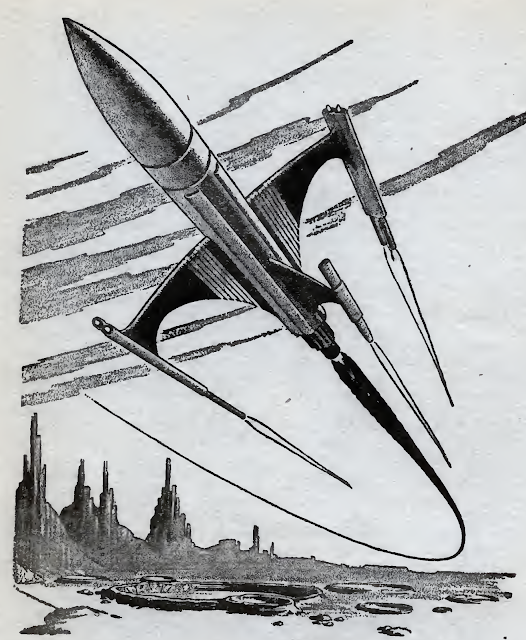Bradford C Walker has written some interesting things about the point or goal of RPGs, hearkening back to the roots in wargames. He asked in one post, in relation to games, one of which was Traveller: “Make obvious what is hidden. Make explicit what is implicit.”
Okay, challenge accepted.
Some of what follows is quotes from The Traveller Book. TTB has the most extensive Introduction section of the three rules editions of CT. (TTB, LBBs 1-3, and Starter Traveller) Much of it is my read & interpretation of what I’ve found there.
Some say the one core assumption of Traveller is that communication moves at the speed of travel. The implications of that I touched on in this post.
An implicit assumption of Traveller is that the players are familiar with space adventure literature. There are references to different adventure novels throughout the rulebooks, and the Official 3I setting.
Encounters are central to Traveller. In space, you have starship encounters. On uninhabited worlds there are animals and events to encounter. On inhabited worlds, there are legal, random and patron encounters. These are tools for the Referee to provide challenge and opportunity for the players.
“The use of non-player characters is one of the most important things for a Referee to learn.” (TTB, p.13) "A large part of a Referee's job is the administration of encounters." (TTB, p.11)
There are four types of NPCs. Spear carriers, informants, patrons, and trouble-makers. All can help or hinder the Travellers in their adventures.
PCs also encounter Information. The Referee should keep information in four categories. One, what the PCs know because they exist in the world (common knowledge). Two what will cost the PCs little to learn. Three, what will cost them much to learn, and four, that which they cannot learn by themselves.
Marc
Miller (the author) states that conventional means like thrift and hard work do not work in
Traveller. Bold, daring plans do, or might, work.
There are a potentially astronomical (pun intended) number of worlds for Traveller to discover. We have, thanks to NASA, some excellent photography of what other worlds may look like.
But Traveller assumes a different approach. Players should look to Edgar Rice Burroughs, Leigh Brackett and Poul Anderson to tell us what other planets will look like. Those kinds of planets are where adventures happen!
Supplement 2, Animal Encounters assumes that even worlds different from our own will be teeming with life that can challenge or threaten the Travellers. They can also be valuable resources.
Traveller assumes:
• A human-centric setting
• Character focus
• Experience is power
• There is NO setting in the original LBBs.
• Travellers will meet both high and low
tech peoples
• There is freedom to DREAM BIG
• Ambition will get you further than
playing it safe
• People in the Far Future are the same as
people today
• Danger is never far away
• Travellers do NOT have plot armor
• Encounters are central
• Travellers mix with a cross-section of
society
• Travellers improve their Social Standing
only through play, not game mechanics.
• Player skill is of utmost importance,
more than improvement of PC characteristics or skills
• The universe will always be able to up
the challenge level
• Travellers are not demi-gods walking
• The Referee defines the setting
• PCs are veterans, not neophytes, right
out of the gate
• Solitaire play in Traveller is possible,
and correct.
• Campaign play is the expected norm
• Adventures provide money which provides
gear/vehicles/NPCs which enable the pursuit of player’s goals. So go get rich!
• Players want the possibility of magic and
mysterious abilities. Marc Miller has said that Psionics are in the game
because D&D has magic, so Traveller should too.
• Living is cheap so down-time is easy to
do, in monthly blocks even.
• Only Class-A ports can build or repair
jump drives.
• Wildernesses are there to explore (why
else animal encounters?)
• The necessity of fighting. There are more
rules on weapons and combat than there are about interacting with NPCs.
• All the listed skills will, at some
point, be useful.
This
list is, of course, not exhaustive. Share your Traveller assumptions in the
comments!
One
last thought. Traveller is not a strict “hard science” game. Yes, there are
math formulae for space travel times and planetary gravity and such, but the
operative assumption is not correct/accurate science but believable science.
People can (please don’t) argue all day about the size of starship computers,
but we can all agree that a starship should have a computer. Believable, if not
accurate.

No comments:
Post a Comment